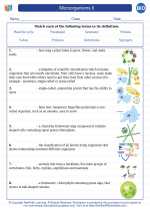Taxonomy
Taxonomy is the science of naming, defining and classifying groups of biological organisms based on shared characteristics. It provides a systematic approach to organizing the vast diversity of living organisms, allowing scientists to study and understand the relationships between different species.
Importance of Taxonomy
Taxonomy is important for several reasons:
- Organizing Diversity: It helps in organizing the vast array of living organisms into logical and easily understandable groups.
- Understanding Relationships: By studying the similarities and differences between species, taxonomy helps in understanding the evolutionary relationships among organisms.
- Communication: Taxonomic classification provides a universal language for scientists to communicate and share information about different species.
- Conservation: It plays a crucial role in conservation efforts by identifying and protecting endangered species.
Levels of Taxonomic Classification
Taxonomic classification is hierarchical, with each level representing a different degree of relatedness among organisms. The levels, from broadest to most specific, are:
Binomial Nomenclature
Each species is given a two-part scientific name according to the system of binomial nomenclature developed by Carolus Linnaeus. The first part is the genus name, and the second part is the specific epithet. For example, humans are known as Homo sapiens, where Homo is the genus and sapiens is the species name.
Studying Taxonomy
To study taxonomy effectively, it is important to:
- Understand the principles of classification and nomenclature.
- Learn to recognize and differentiate between different taxonomic groups.
- Use tools such as dichotomous keys and phylogenetic trees to classify organisms.
- Stay updated with the latest developments in taxonomy, including new species discoveries and reclassifications.
Practice Questions
- What is the purpose of taxonomy?
- Arrange the following taxonomic levels in the correct hierarchical order: Phylum, Class, Kingdom, Species.
- Explain the significance of binomial nomenclature.
- How can taxonomy contribute to conservation efforts?
[Taxonomy] Related Worksheets and Study Guides:
.◂Biology Worksheets and Study Guides High School. Microorganisms II
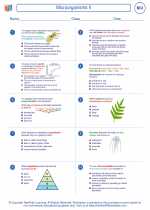
 Worksheet/Answer key
Worksheet/Answer key
 Worksheet/Answer key
Worksheet/Answer key
 Vocabulary/Answer key
Vocabulary/Answer key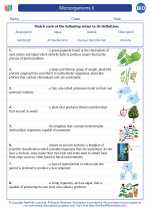
 Vocabulary/Answer key
Vocabulary/Answer key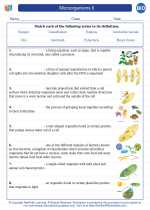
 Vocabulary/Answer key
Vocabulary/Answer key
 Vocabulary/Answer key
Vocabulary/Answer key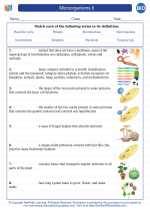
 Vocabulary/Answer key
Vocabulary/Answer key